Cork camogie didn't adapt quick enough to All-Ireland final refereeing
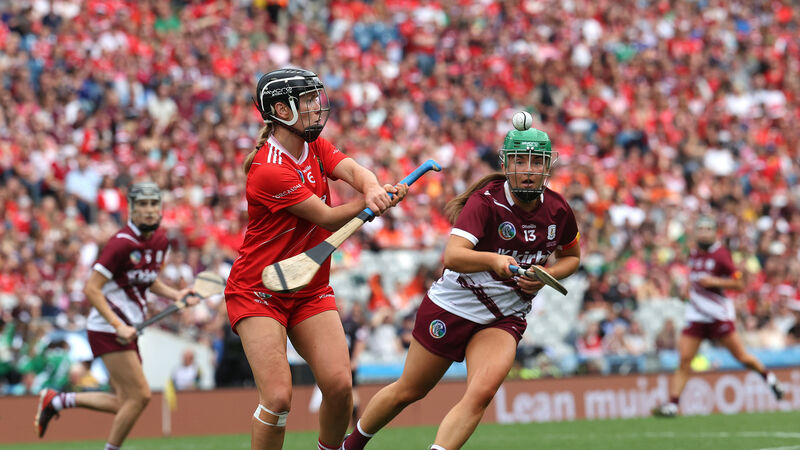
Cork's Laura Treacy fires a pass from Mairead Dillion of Galway at Croke Park. Picture: INPHO/Bryan Keane
Finals are often refereed differently, and Galway used that knowledge to play Sunday’s camogie decider on their terms.
Much like Johnny Murphy in last year’s hurling final, Justin Heffernan had satisfied the assessors to earn his spot for the big day. For the last outing of the summer, he chose to relax the rulebook.
Camogie has long wanted for more permitted physicality between teams.
Players spend their lives in the gym. Harder hits should be embraced in the official rules, which only allow for “minimal contact”.
What’s needed is coordinated change rather than certain rules being cast aside for televised matches, when teams have been playing under an alternative set of regulations for the year. But it’s the other 99% of matches that should be refereed more like Sunday’s final than vice versa.
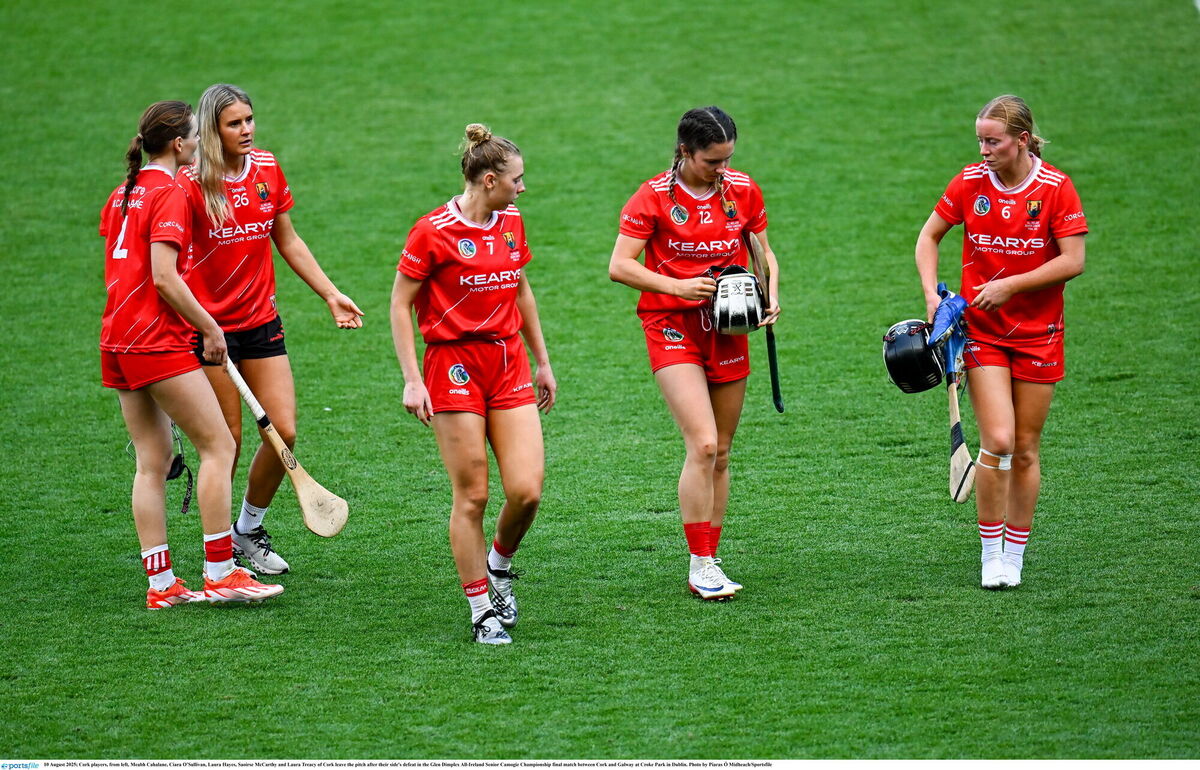
Ger Manley was clear in his objection to the officiating, labelling it “shocking”.
But many of the instances he highlighted, such as Hannah Looney’s red card and the claim that Carrie Dolan dived for her winning free, were correct calls. The most blatant error was Caoimhe Kelly’s push on goalkeeper Amy Lee in the first half.
Heffernan would surely admit as much on review. The truly baffling element of that incident was why the Galway corner-forward tapped over the bar, rather than go for the wide-open goal. It seemed an admission of guilt.
Clodagh Finn seemed to have a reasonable claim for a late levelling free, although that no-call was very much in keeping with the way Heffernan chose to let the play flow.
It should be remembered that Galway have had their share of heartache from refereeing calls in this fixture.
Last year, Katrina Mackey’s goal was allowed to stand despite the sliotar being inadvertently thrown into the net.
You can debate whether she should’ve had a penalty instead. Either way, Sarah Healy’s save from Mackey this time around showed that getting past the St Thomas stopper is no routine task.
The Tribeswomen pushed the laws to their limits as they tackled aggressively and in swarms. In too many rucks, maroon jerseys outnumbered red ones.
Even in the half-hour played 15-on-15, they forced 10 more turnovers than their rivals. The vast majority of their scores came from that source of possession.
Take the goal. Cork’s touch had seemed off from the outset and Saoirse McCartan was punished for a missed pick-up from a sideline cut around the middle.
With their defensive cover stretched, Aoife Donoghue’s direct running teed up Mairead Dillon to do the rest.
Cork’s growing frustration was evident long before Looney’s reaction to Dolan’s provocation.
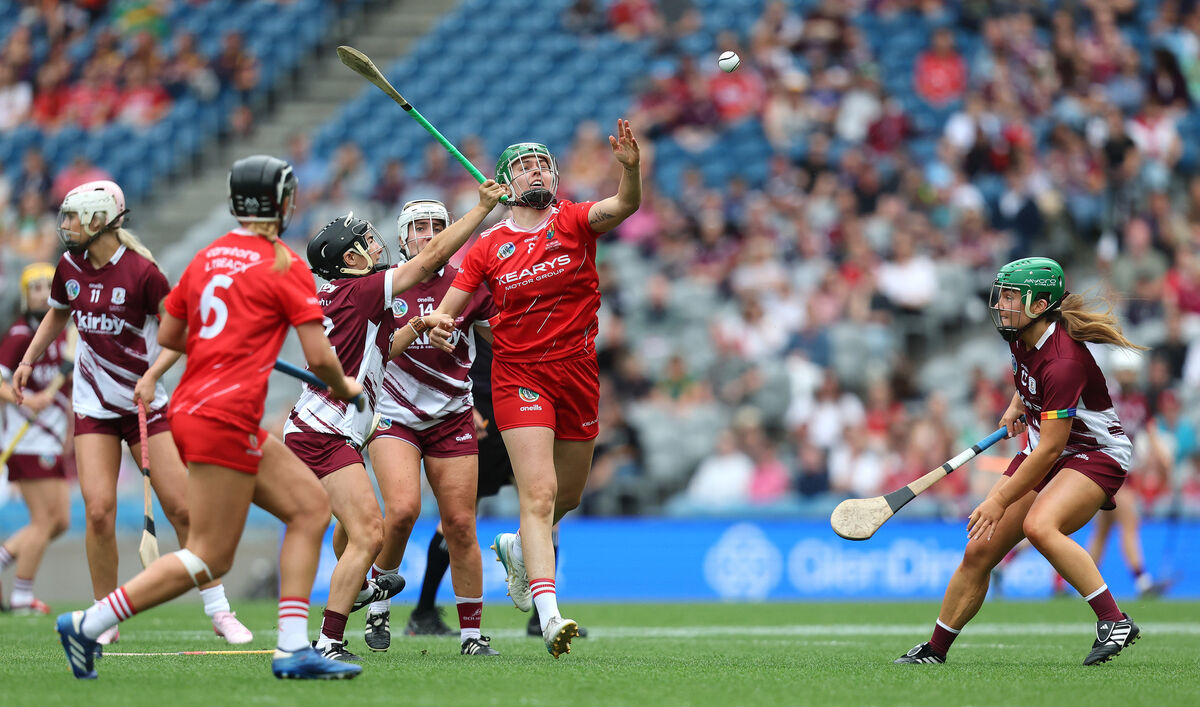
Ultimately, the inside forwards were sacrificed to accommodate the fresher legs needed to play with 14. Mackey, McCartan, and Amy O’Connor were the first three players called ashore.
Their four highest scorers this year were all held scoreless from play. Two of them didn’t get a shot off.
That’s not all down to their output. The fact that Cork converted 70% of their shots against Galway’s 56% underlines how many more chances the victors created.
They got their deliveries in from better zones and played smarter across the hour. But true champions die hard, and Cork deserve huge credit for hanging in there.
They are used to playing against sweeper systems in training and matches so the numerical disadvantage wasn’t new to them. They were prepared for that scenario, their bench packed a greater punch, and eventually began to poke holes in the cover.
Libby Coppinger was a rock in one-on-one battles at full-back. Ashling Thompson stood up with stirring points when the tide was going against Cork, and got back for a hook on Dillon in the closing stages.
Even after her late miss, she won the next puck-out break and, as a result, the free for the goal.
Orlaith Cahalane raising that green flag was a reward for her effort and patience. It could’ve easily rescued a second chance for her side.
Of their eight attempts, seven have been ended by one-score defeats. The other was a four-point loss.
The 'what-ifs' will be especially haunting after this final.
For all that Cork underperformed, for all that they can curse bad breaks, for all that they were outnumbered, it wouldn’t have taken a whole lot to have gone differently to come away with at least a draw.
That said, like Galway last year, this defeat should hurt more because Cork were outplayed, not because of refereeing decisions.

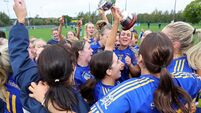
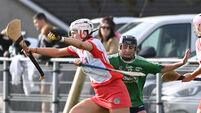


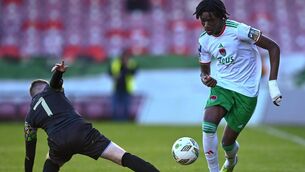



 App?
App?







